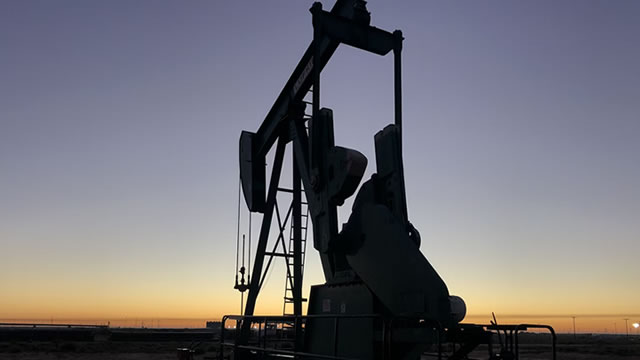The Oil Market’s Surprising Turn: Rising Prices Amidst Global Tensions
In recent months, the global oil market has experienced an unexpected surge, with crude oil prices reaching new heights. This upturn in the market can be attributed to a perfect storm of geopolitical tensions and robust demand.
Sanctions on Venezuela and Iran: A Double Whammy for the Oil Market
The United States’ decision to impose sanctions on both Venezuela and Iran has significantly impacted the oil market. Venezuela, once an OPEC heavyweight, is currently mired in political and economic turmoil, leading to a sharp decline in its oil production.
Iran, another major oil producer, is also facing crippling sanctions that aim to restrict its oil exports. These sanctions, which were reinstated in 2018, have already led to a decrease in Iranian oil production and exports.
Bullish Oil Outlook: Strong Demand and Major Inventory Draw
Despite the increasing supply constraints, the oil market’s bullish outlook is further strengthened by strong global demand and a major inventory draw. The ongoing economic expansion in countries like China and India, which are among the world’s largest oil consumers, has contributed to the surge in demand.
Additionally, the Organization of the Petroleum Exporting Countries (OPEC) and its allies, known as OPEC+, have implemented production cuts to support prices and reduce the global oil glut. These cuts, combined with the inventory draw, have helped to tighten the oil market and push prices higher.
What Does This Mean for You?
For consumers, the rising oil prices could translate into higher costs at the gas pump. The price of gasoline is directly linked to the price of crude oil, so when oil prices rise, gasoline prices typically follow suit.
- Increased costs for transportation: Higher oil prices could lead to increased costs for businesses and individuals that rely on transportation, such as airlines, shipping companies, and trucking firms.
- Impact on inflation: Rising oil prices could contribute to inflation, as the cost of producing and transporting goods increases.
What Does This Mean for the World?
The global economy could also be affected by the rising oil prices. Developing countries, which are heavy importers of oil, could face increased financial strain as they struggle to pay for their oil imports.
- Impact on economic growth: Higher oil prices could slow down economic growth in countries that rely heavily on oil imports, particularly those with weak economies.
- Geopolitical tensions: The oil market’s volatility could lead to increased geopolitical tensions, particularly between oil-producing and oil-importing countries.
Conclusion: Navigating the Complex World of Oil Prices
The rising oil prices, driven by geopolitical tensions and strong demand, have significant implications for both consumers and the global economy. While the short-term impact may be felt at the gas pump, the long-term consequences could be more far-reaching, affecting everything from inflation to economic growth. As the oil market continues to evolve, it’s essential to stay informed and prepared for the potential impacts on your wallet and the world at large.





